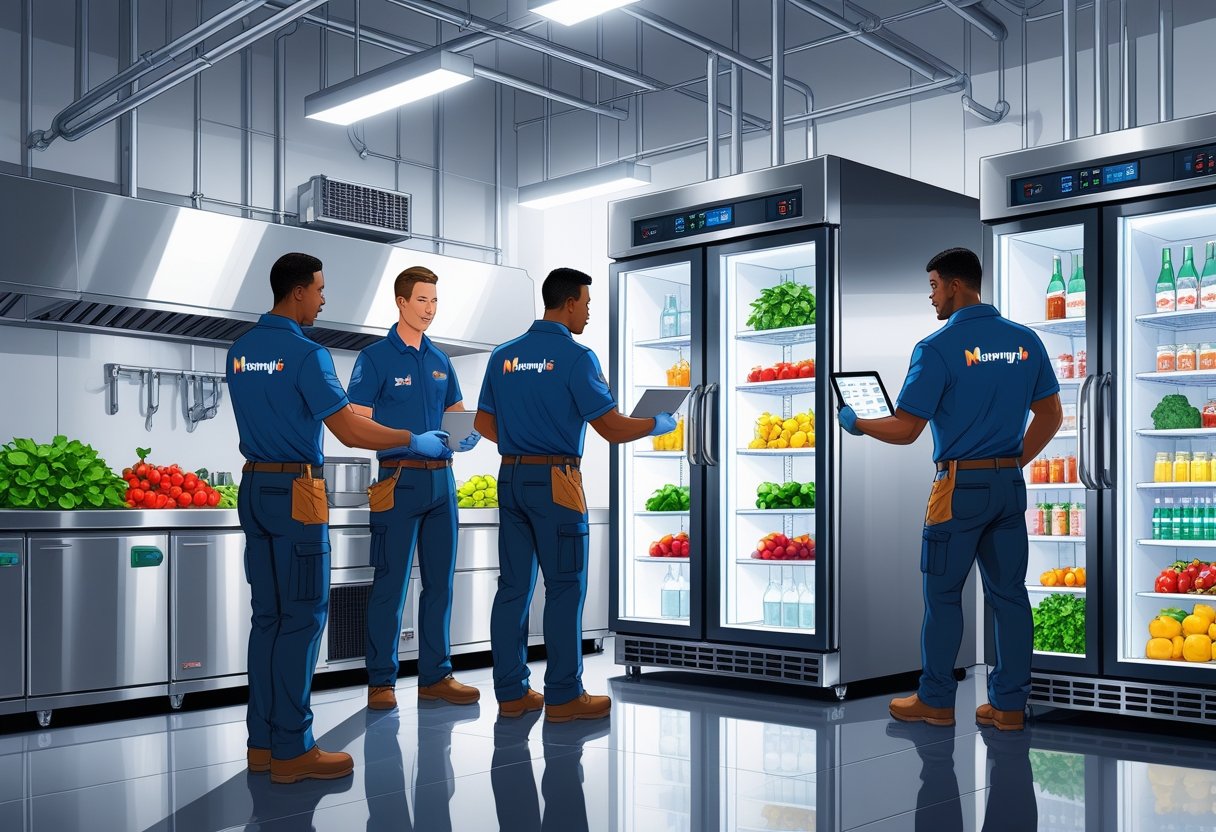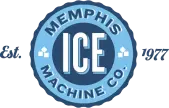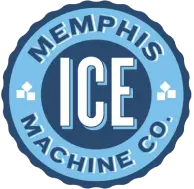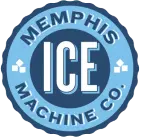proudly serving
the mid-south
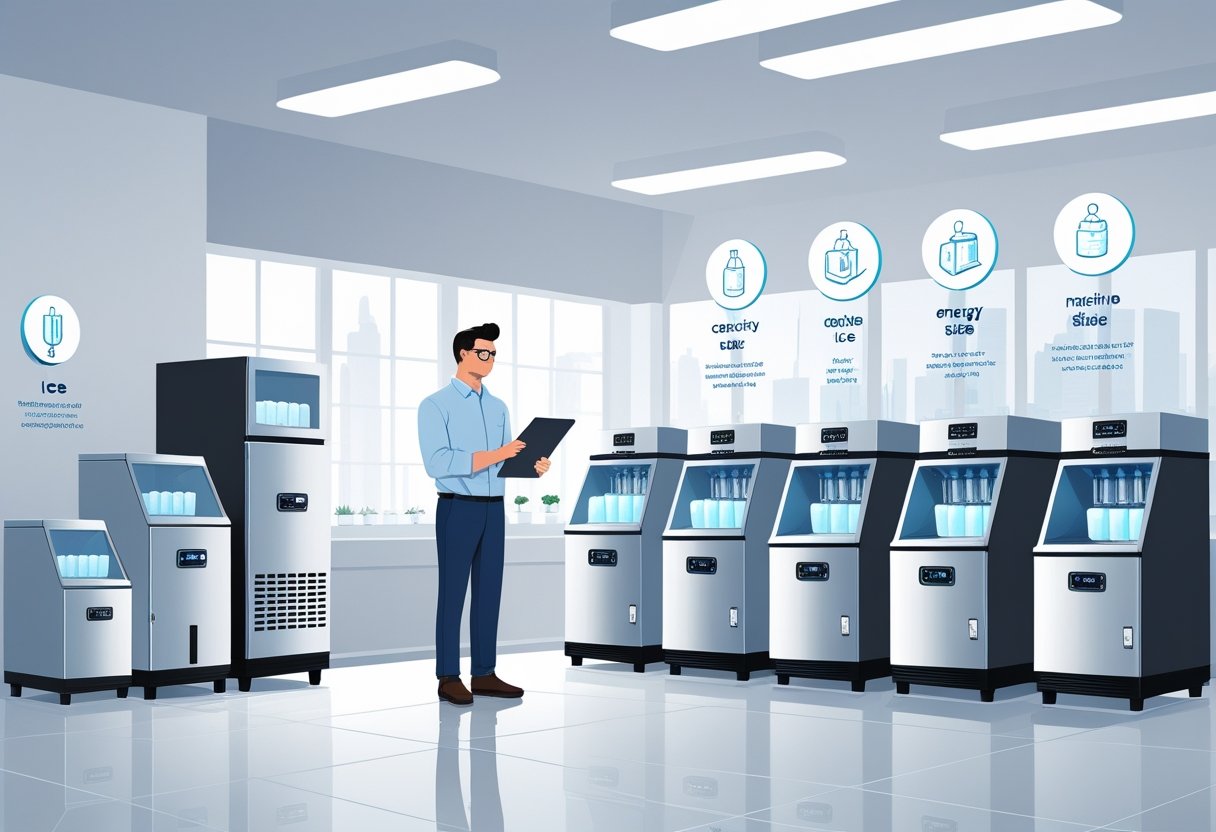
How to Choose a Commercial Ice Machine for Optimal Efficiency and Reliability
Choosing the right commercial ice machine is essential for keeping your business running smoothly and your customers satisfied. The key is to find a unit that matches your ice production needs, fits your space, and operates efficiently. A commercial ice machine should deliver the right type and volume of ice consistently while minimizing energy use and maintenance demands.
Whether you run a busy restaurant, a bar, or a healthcare facility, understanding the different types of commercial ice makers and their features will help you make an informed decision. Factors like capacity, ice shape, and condenser type all play a role in finding a model that suits your specific operation.
At Memphis Ice, we’ve been keeping Mid-South businesses cool since 1977, offering expert guidance and reliable service. Choosing the right ice machine isn’t just about the equipment—it’s about ensuring your ice and refrigeration are the least of your worries.
Assessing Your Ice Production Needs
Choosing the right commercial ice machine means knowing how much ice you really need, when you need it, and how those needs might change. This ensures you pick a machine with the right size and daily ice production capacity without overspending or falling short during busy times.
Calculating Daily Ice Consumption
Start by estimating how much ice your business uses in a typical day. Consider all points where ice is needed—drink service, food prep, display cases, and customer use. For example, a busy restaurant might require 400-600 pounds daily, while a smaller café needs far less.
Keep in mind the type of ice affects volume, too. Nugget ice packs loosely, so it looks like more, whereas clear cube ice is denser. Your commercial ice machine should match your specific ice production needs to avoid shortage or waste.
Record your peak daily ice use for accuracy. This number directly impacts the machine size and ice production capacity you should target.
Planning for Peak Demand
Your ice machine must handle your busiest hours, not just average days. For example, a hotel hosting conferences or a stadium on event days will require more ice than usual.
Factor in the maximum ice needed during peak shifts or seasonal events. You might need a machine that produces 50% to 100% more ice than your daily average to avoid running out.
If your space is limited, consider models with higher efficiency in a compact size. Memphis Ice can help evaluate your floor plan and recommend machines that balance ice capacity with physical size.
Factoring in Growth and Seasonal Fluctuations
Your ice production needs can increase with business growth or special seasons like summer when demand spikes. It’s wise to plan for these changes upfront to prevent costly machine upgrades later.
Estimate your expected growth in sales and customer volume over the next few years. Similarly, count seasonal peaks—such as tourist season or holiday events—that raise your ice requirements.
Choosing a commercial ice machine with scalable capacity or renting additional units during peak periods can provide flexibility. Memphis Ice supports businesses throughout the Mid-South with reliable service and helps you prepare for seasonal demand shifts.
Understanding Commercial Ice Machine Types
Choosing the right commercial ice machine depends on your space, production needs, and how you plan to store or use the ice. Different models vary widely in size, installation requirements, and daily ice output, so understanding these differences will help you match the equipment to your operation effectively.
Modular Ice Machines
Modular ice machines consist of separate ice-making and storage units. The ice maker sits on top of a standalone bin or storage container, allowing you to customize capacity and production based on your business needs.
These machines are ideal for high-volume environments like cafeterias, hotels, or hospitals where large quantities of ice are essential. They can produce anywhere from hundreds to thousands of pounds of ice per day, depending on the model.
Because they require separate installation and space for the bin, consider factors like floor space and maintenance accessibility. Modular ice machines offer flexibility but need more planning upfront, especially for ventilation and water supply. For businesses with growing or variable demands, modular units are a reliable choice.
Undercounter Ice Machines
Undercounter ice machines combine ice production and storage in one compact unit designed to fit under counters or worktables. These machines are perfect for limited spaces such as small restaurants, bars, or clinics where convenience and accessibility matter.
Typically, they produce between 50 to 300 pounds of ice per day, which is sufficient for moderate ice needs. Their compact design minimizes floor space use and makes installation simpler since there’s no need for a separate bin.
Maintenance tends to be easier due to integrated systems, and cooling is often air-based. If you need a balance between output and space-saving, undercounter machines are a practical option to consider.
Countertop Ice Makers
Countertop ice makers are small, self-contained units that sit atop bars, counters, or shelves. They usually produce up to 50 pounds of ice daily, catering to businesses with very low ice demand like small cafes, convenience stores, or healthcare offices.
Their portability and minimal footprint allow for quick installation and easy relocation. However, they are not suitable for high-volume operations due to limited production capacity.
Despite their size, countertop ice makers can produce various ice types, like cubes or nuggets, suited for specific uses. If space constraints and light demands are your main concerns, these machines could be the right fit.
Memphis Ice can guide you through selecting the right model tailored to your business’s daily output and space requirements. Talk to an expert today to explore options that keep your operation running smoothly.
For more details on types and capacities, visit this guide to commercial ice machines.
Choosing the Right Ice Type
Selecting the correct ice type impacts your operation’s efficiency and customer satisfaction. Different ice varieties suit distinct uses, from chilling drinks to food preservation. Understanding these key differences will help you match your commercial ice machine to your business needs.
Cubed Ice and Its Uses
Cubed ice is the most common type produced by commercial ice machines. It features solid, uniform cubes that melt slowly, keeping beverages cool without diluting them quickly. This makes cubed ice ideal for bars, restaurants, and catering businesses.
There are variations like standard cubes and gourmet cubes, which are clearer and denser. Cubed ice works well in drink presentations, food displays, and hospital settings where maintaining drink or display integrity matters. It’s also easy to handle and store in most commercial ice bins.
If your business demands consistent, visually appealing ice with moderate melt rate, cubed ice is a reliable choice.
Flaked and Flake Ice Applications
Flaked ice consists of small, soft, and irregular pieces, ideal for applications requiring rapid and even cooling. It packs tightly around items which makes it perfect for seafood displays, salad bars, and fresh produce preservation.
Its softness reduces damage to fragile items, and it absorbs moisture efficiently. Flaked ice machines are often used in healthcare for patient cooling and in food processing to maintain product freshness.
If your priority is gentle cooling and coverage, flake ice offers advantages over other ice types while also being energy efficient.
Nugget Ice for Versatile Needs
Nugget ice, sometimes called “chewable ice,” is soft and squeezable with good density. It cools quickly and is popular in fountain drinks, healthcare facilities, and even convenience stores. Customers appreciate its chewability and texture, which adds a unique experience to drinks.
This ice type uses less water per pound of ice, making it cost-effective in some setups. Its porous structure allows quick freezing and easy dispensing from machines designed specifically for nugget ice.
If your operation benefits from customer interaction with ice or fast cooling, nugget ice is a versatile option.
Gourmet Ice for Specialty Settings
Gourmet ice refers to clear, perfectly shaped cubes or spheres designed for high-end cocktail presentation. These ice types have minimal air bubbles and melt very slowly, preserving the flavor and visual appeal of upscale drinks.
Common in premium bars, hotels, and events, gourmet ice machines require precise temperature control and maintenance. They often come with a higher initial cost but enhance customer perception and drink quality.
For businesses prioritizing aesthetics and slow melt in specialty drinks, gourmet ice meets those exact needs with sophistication.
Choosing the proper ice type in your commercial ice machine directly supports your operational goals. Memphis Ice is ready to guide you through these choices with decades of experience serving the Mid-South’s food service and hospitality sectors. Learn more about different options in this detailed commercial ice machine buying guide.
Critical Features and Specifications
Choosing the right commercial ice machine means balancing storage capacity, dispensing solutions, and essential features that impact efficiency and maintenance. Each element plays a crucial role in matching your business’s ice needs and workflow demands.
Ice Storage Options
Your ice machine’s storage capacity determines how much ice you can keep ready without wasting energy or space. Ice storage bins come in various sizes and shapes, often integrated directly with the ice machine or available as standalone units.
Consider the volume of ice you use daily. High-demand businesses need large capacity bins to prevent running out during peak hours. Also, check if the bin is insulated to slow melting and maintain ice quality.
Bins designed for easy cleaning and sanitation reduce downtime. Some models include antimicrobial protection, an important feature to maintain hygiene. Space and placement also matter — ensure easy access for staff and compatibility with your kitchen layout.
Ice Dispensers and Accessories
Ice dispensers improve efficiency by providing quick, hygienic access to ice. Choose from built-in dispensers attached to the machine or external units that fit over storage bins.
Automatic dispensers reduce contact with ice, lowering contamination risk and speeding up service during busy periods. Manual scoop access remains an option but demands rigorous cleaning protocols.
Accessories can include water filtration systems to improve ice clarity and taste, as well as drain pans and overflow systems to manage excess water. You may also find options for different ice shapes and textures to fit specific uses, like nugget or cube ice.
Essential Ice Machine Features
Critical features impact performance, ease of use, and energy consumption. Look for machines with user-friendly controls allowing straightforward operation and diagnostics.
Energy efficiency matters, especially with rising utility costs. Seek ENERGY STAR-rated machines that conserve power without sacrificing output. Cooling methods—air-cooled, water-cooled, or remote—should align with your facility’s infrastructure and climate.
Maintenance features like removable panels, self-cleaning cycles, and reliable water filters can save you time and extend your machine’s lifespan. Your choice should prioritize less downtime and easy service access.
At Memphis Ice, we’ve seen how the right combination of these specifications ensures your ice supply is consistent and low-worry year-round. Talk to an expert today to find the best fit for your operation.
For more details on selecting the right commercial ice machine, visit the Complete Guide to Commercial Ice Machines.
Evaluating Efficiency, Brand, and Cost
Choosing the right commercial ice machine means balancing energy use, price, and trusted brands. These factors directly affect your operating costs, reliability, and the quality of service you can expect over time. Understanding each element will help you invest in a machine that fits your business needs and budget with minimal hassle.
Energy Efficiency Standards
Energy efficiency impacts your long-term costs heavily. Look for ice machines that meet or exceed ENERGY STAR standards to reduce electricity consumption while maintaining high ice production.
Air-cooled machines typically use less energy compared to water-cooled ones but may require more space and ventilation. The right choice depends on your facility’s layout and climate.
Efficient ice machines also produce less waste heat, helping your refrigeration systems stay balanced. Memphis Ice recommends focusing on machines designed to optimize energy use without sacrificing output, especially during Memphis summers when demand peaks.
Comparing Price and Value
Price is often the first consideration but focusing solely on upfront costs can lead to higher expenses later. Assess the total cost of ownership, including maintenance, repairs, and energy bills, when comparing models.
You may find that a mid-range machine offers the best value due to reliable performance and lower operating costs. Renting an ice machine is also an option to manage seasonal needs without a heavy initial investment.
Consult with local experts like Memphis Ice for tailored advice on what will suit your Mid-South operation, ensuring you don’t pay for more capacity or features than required.
Notable Commercial Ice Machine Brands
When it comes to dependable brands, Scotsman Ice Systems has a solid reputation for quality and innovation. Their machines are widely recognized for energy efficiency, durability, and easy maintenance.
Memphis Ice has experience supporting a variety of brands but prioritizes trusted names known for consistent service and longevity. Brand reliability means fewer breakdowns, smoother maintenance, and better support.
Choosing a machine from a well-established brand also ensures compatibility with replacement parts and proven technology, which reduces downtime during busy periods in your business.
Installation, Maintenance, and Troubleshooting
Proper installation and ongoing care are essential to keep your commercial ice machine running smoothly. You need to plan for the right location, regular cleaning routines, and quick action on common issues to avoid downtime.
Space and Placement Considerations
Choose a location with enough clearance around the machine for airflow and maintenance access. Most units require at least 6 inches of space at the back and sides. Avoid placing the machine near heat sources or in direct sunlight to improve energy efficiency and prevent overheating.
Water supply and drainage must be nearby and meet local plumbing codes. When possible, install on a level surface to ensure proper ice formation and prevent mechanical strain. Memphis Ice technicians recommend considering room temperature since higher temps increase energy use and reduce ice output.
Routine Cleaning and Care
Regular cleaning protects ice quality and extends machine life. Clean the water lines, ice storage bin, and condenser coils according to the manufacturer’s schedule, usually every 1 to 3 months. Use approved cleaning products to prevent damage.
Sanitize the storage bin and ice chute weekly to avoid bacterial buildup. Check water filters regularly and replace them as needed to maintain water purity. Memphis Ice offers maintenance plans designed to keep your machine in top shape year-round.
Common Maintenance Issues
Common problems include ice clumping, reduced production, and water leaks. These often stem from clogged filters, dirty condenser coils, or low refrigerant levels. Inspect and clean air filters and coils to improve airflow and cooling efficiency.
If you notice unusual noises or slow ice production, check for scale buildup or mineral deposits inside the machine. Address leaks promptly to avoid water damage and ensure efficient operation. Troubleshooting early prevents costly repairs and downtime.
For expert support or installation tailored to your business, contact Memphis Ice to keep your ice machine working at its best.
Learn more about commercial ice machine installation and care at this Commercial Ice Machine Installation Guide.
Frequently Asked Questions
Choosing the right commercial ice machine involves understanding your business’s specific ice production needs, recognizing key features that affect performance and cost, and planning for reliable upkeep. You also need to weigh options like ice types, rental versus purchase, and energy impact on operating expenses.
What factors should be considered when sizing a commercial ice machine for business needs?
Calculate your peak hourly and daily ice demand based on your busiest times. Consider the types of ice used in your operation and how fast you need replenishment to avoid supply shortages.
Space and storage capacity must match the machine’s output. Oversizing wastes energy and budget, while undersizing risks running out during busy periods.
Which features are most important when comparing different commercial ice maker brands?
Look for durability, ease of maintenance, and availability of local service support. Features like automatic cleaning cycles and water filtration impact longevity and ice quality.
Energy efficiency ratings and warranties also help you compare brands objectively. Choose a brand known for reliable parts and fast service turnaround in your region.
How do you determine the right type of ice cube for your commercial ice maker?
Match the ice type to your business needs—clear cubes for bars and restaurants, nugget ice for healthcare or beverage service, flake ice for display or preservation. The application influences machine selection.
Different ice types affect production speed and storage requirements, so knowing your primary use helps you pick the best model.
What maintenance considerations should be taken into account when selecting a commercial ice machine?
Regular cleaning schedules are essential to prevent scale buildup and bacterial growth. Check if the machine has easy-access panels and self-cleaning features.
Factor in filter replacement frequency and ease, plus service availability in your area. Timely maintenance reduces downtime and keeps your ice sanitary.
What are the pros and cons of renting versus purchasing a commercial ice machine?
Renting reduces upfront costs and includes maintenance, which can ease cash flow concerns. However, long-term rental costs may exceed purchase prices.
Buying offers full control and potential tax benefits but requires you to handle repairs and upkeep. Consider your business size and cash reserves when deciding which fits.
How energy-efficient are commercial ice machines and what impact does that have on operating costs?
Modern machines use less water and electricity, which lowers utility bills over time. Energy Star–rated models typically consume 10-20% less power.
Choosing energy-efficient equipment pays off in reduced costs and environmental impact, especially during Memphis summers when demand peaks. Memphis Ice can help you find models that balance output with efficiency for your business.
Recent News
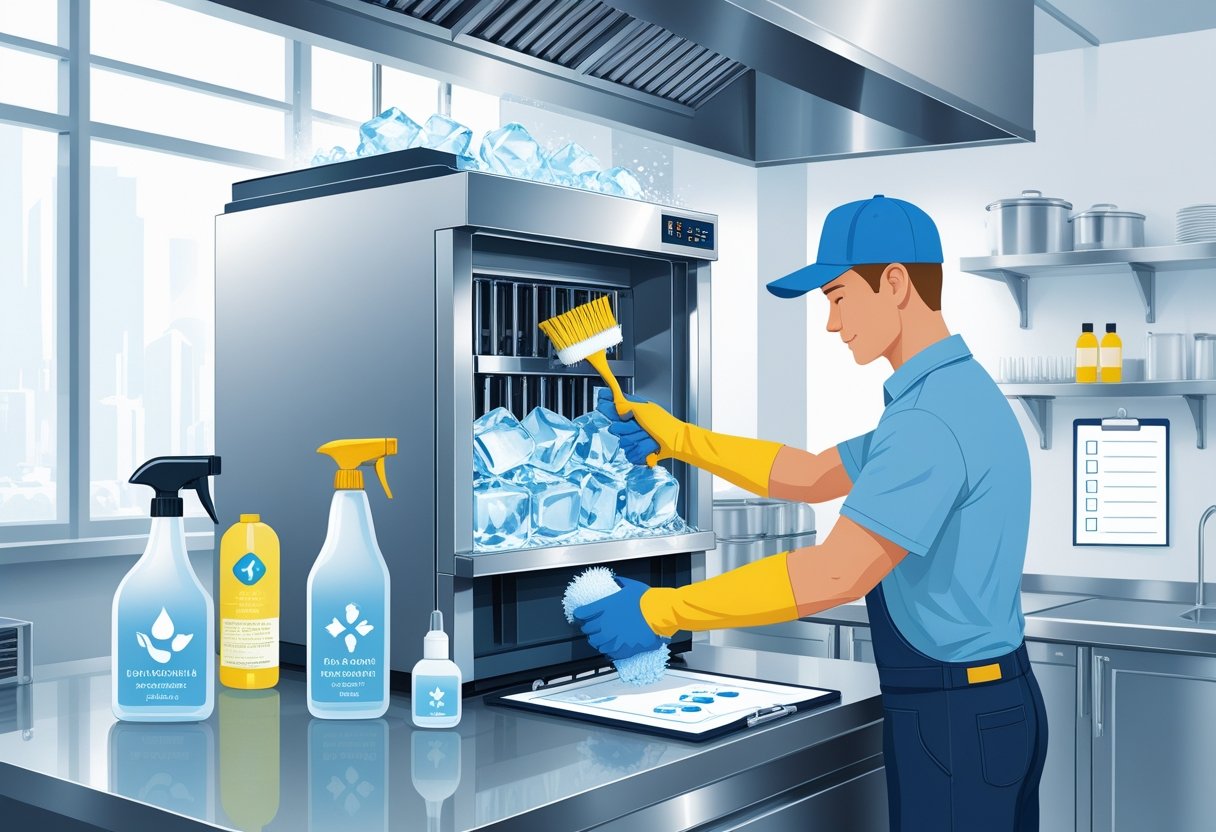
Importance of Routine Ice Machine Cleaning for Health and Efficiency Maintenance
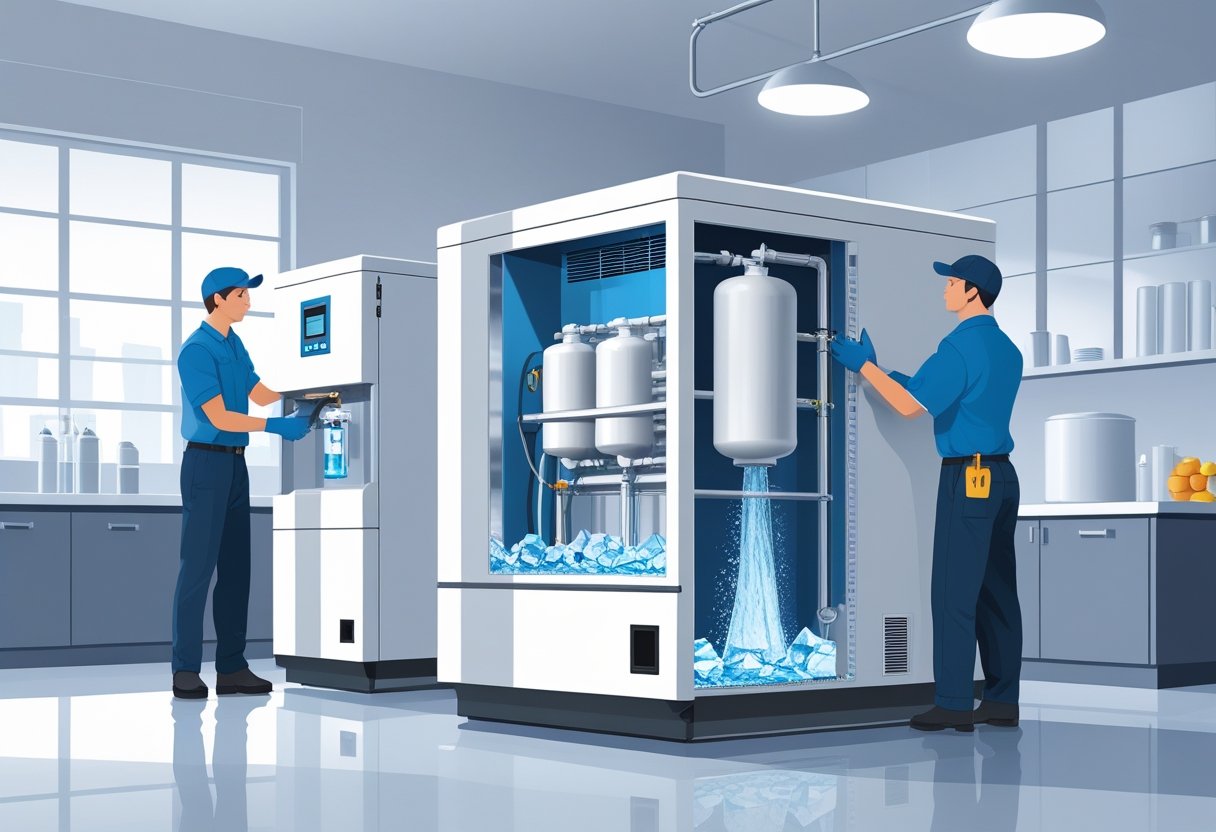
Do Ice Machines Need Water Filters for Optimal Performance and Longevity
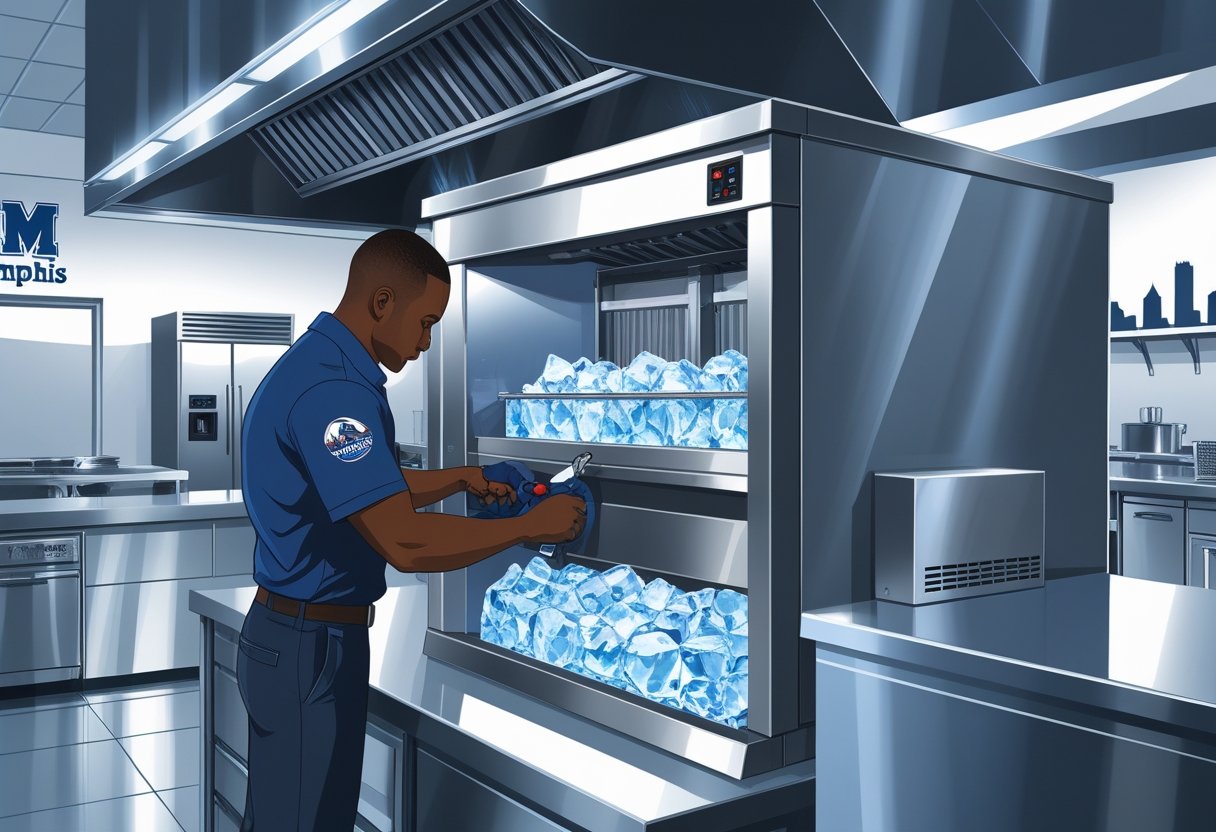
Ice Machine Service Memphis Expert Repairs and Maintenance Solutions
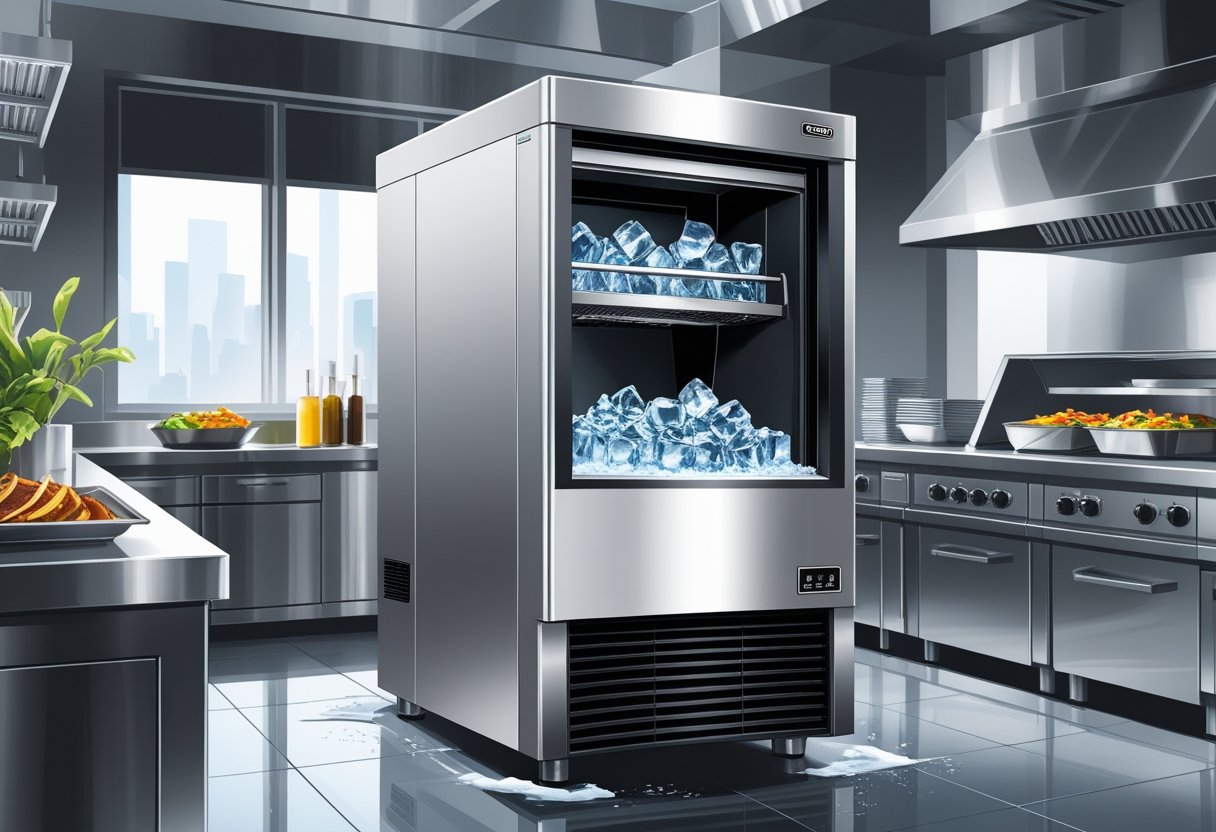
Best Commercial Ice Maker for Restaurants: Top Models for Efficiency and Reliability
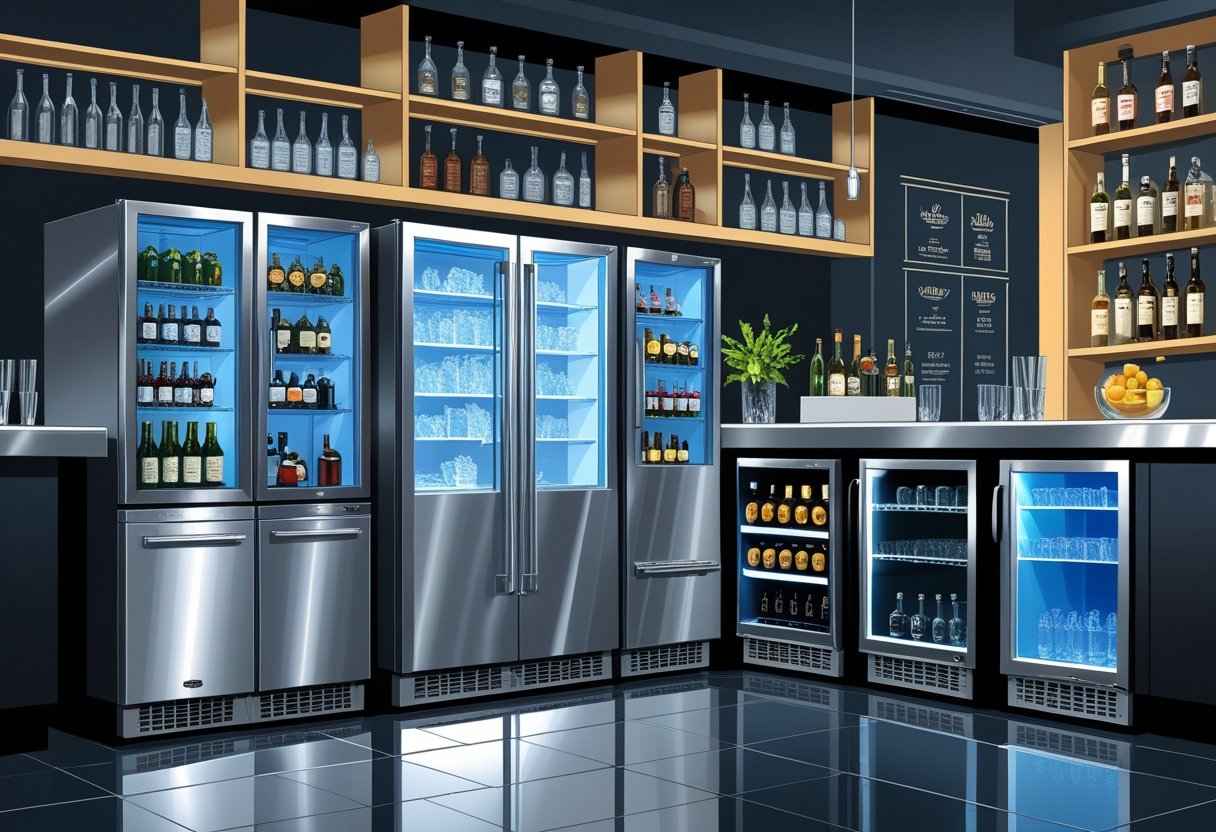
Bar Equipment Refrigeration Guide Essential Tips for Efficient Cooling and Storage
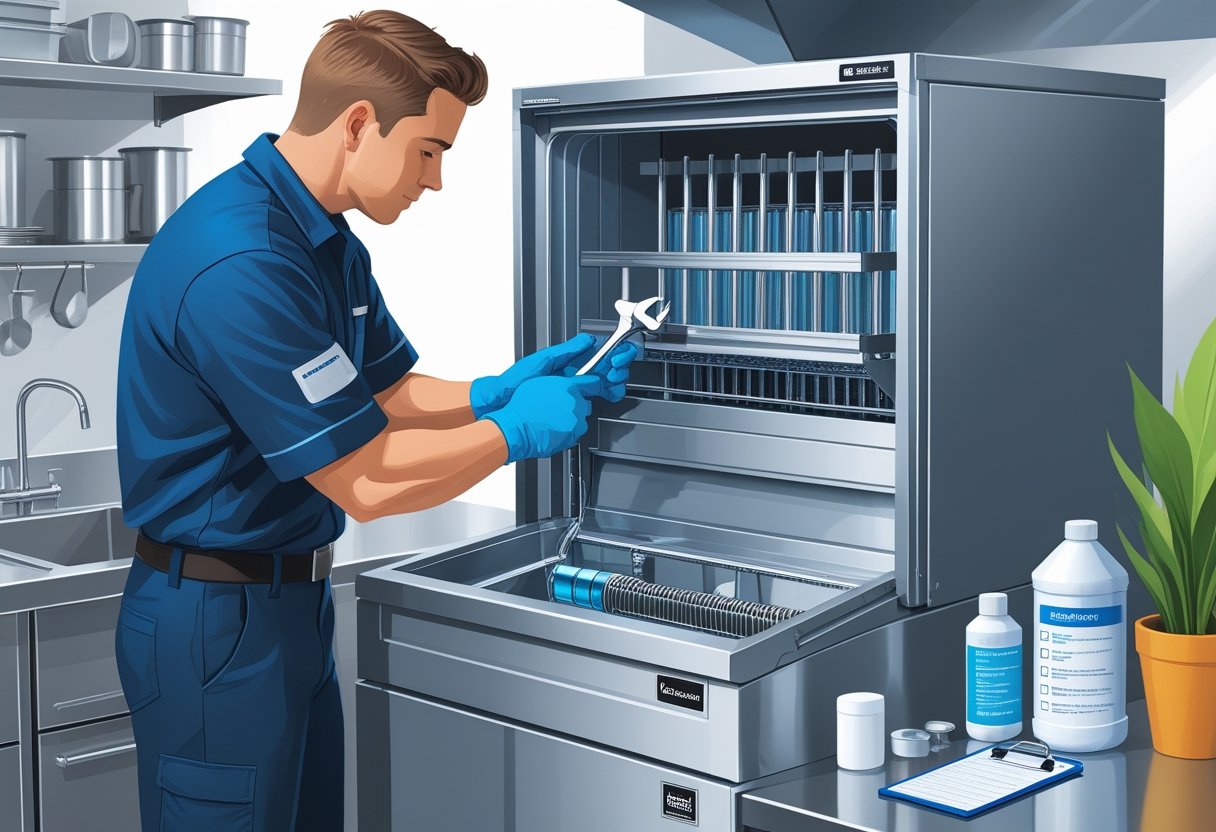
Preventative Maintenance for Ice Machines: Essential Practices to Ensure Efficiency and Longevity
